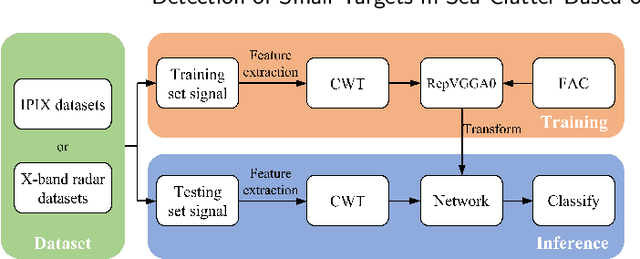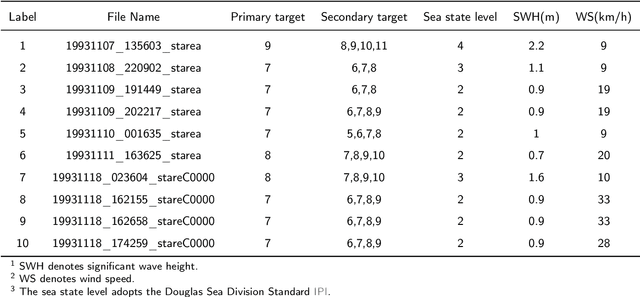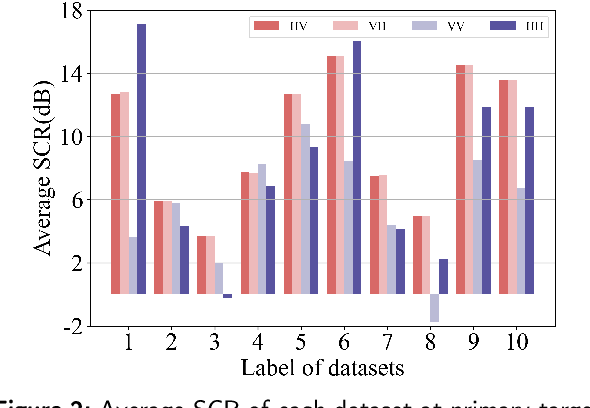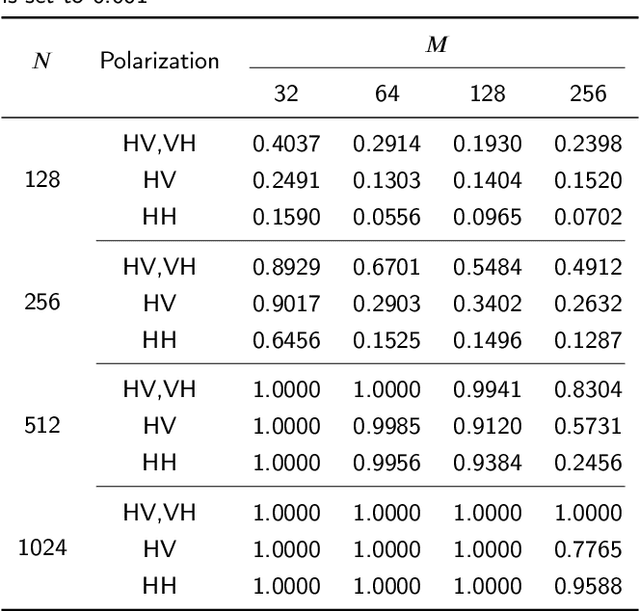Lilin Xu
ContextAgent: Context-Aware Proactive LLM Agents with Open-World Sensory Perceptions
May 20, 2025Abstract:Recent advances in Large Language Models (LLMs) have propelled intelligent agents from reactive responses to proactive support. While promising, existing proactive agents either rely exclusively on observations from enclosed environments (e.g., desktop UIs) with direct LLM inference or employ rule-based proactive notifications, leading to suboptimal user intent understanding and limited functionality for proactive service. In this paper, we introduce ContextAgent, the first context-aware proactive agent that incorporates extensive sensory contexts to enhance the proactive capabilities of LLM agents. ContextAgent first extracts multi-dimensional contexts from massive sensory perceptions on wearables (e.g., video and audio) to understand user intentions. ContextAgent then leverages the sensory contexts and the persona contexts from historical data to predict the necessity for proactive services. When proactive assistance is needed, ContextAgent further automatically calls the necessary tools to assist users unobtrusively. To evaluate this new task, we curate ContextAgentBench, the first benchmark for evaluating context-aware proactive LLM agents, covering 1,000 samples across nine daily scenarios and twenty tools. Experiments on ContextAgentBench show that ContextAgent outperforms baselines by achieving up to 8.5% and 6.0% higher accuracy in proactive predictions and tool calling, respectively. We hope our research can inspire the development of more advanced, human-centric, proactive AI assistants.
An LLM-Empowered Low-Resolution Vision System for On-Device Human Behavior Understanding
May 03, 2025Abstract:The rapid advancements in Large Vision Language Models (LVLMs) offer the potential to surpass conventional labeling by generating richer, more detailed descriptions of on-device human behavior understanding (HBU) in low-resolution vision systems, such as depth, thermal, and infrared. However, existing large vision language model (LVLM) approaches are unable to understand low-resolution data well as they are primarily designed for high-resolution data, such as RGB images. A quick fixing approach is to caption a large amount of low-resolution data, but it requires a significant amount of labor-intensive annotation efforts. In this paper, we propose a novel, labor-saving system, Llambda, designed to support low-resolution HBU. The core idea is to leverage limited labeled data and a large amount of unlabeled data to guide LLMs in generating informative captions, which can be combined with raw data to effectively fine-tune LVLM models for understanding low-resolution videos in HBU. First, we propose a Contrastive-Oriented Data Labeler, which can capture behavior-relevant information from long, low-resolution videos and generate high-quality pseudo labels for unlabeled data via contrastive learning. Second, we propose a Physical-Knowledge Guided Captioner, which utilizes spatial and temporal consistency checks to mitigate errors in pseudo labels. Therefore, it can improve LLMs' understanding of sequential data and then generate high-quality video captions. Finally, to ensure on-device deployability, we employ LoRA-based efficient fine-tuning to adapt LVLMs for low-resolution data. We evaluate Llambda using a region-scale real-world testbed and three distinct low-resolution datasets, and the experiments show that Llambda outperforms several state-of-the-art LVLM systems up to $40.03\%$ on average Bert-Score.
SocialMind: LLM-based Proactive AR Social Assistive System with Human-like Perception for In-situ Live Interactions
Dec 05, 2024



Abstract:Social interactions are fundamental to human life. The recent emergence of large language models (LLMs)-based virtual assistants has demonstrated their potential to revolutionize human interactions and lifestyles. However, existing assistive systems mainly provide reactive services to individual users, rather than offering in-situ assistance during live social interactions with conversational partners. In this study, we introduce SocialMind, the first LLM-based proactive AR social assistive system that provides users with in-situ social assistance. SocialMind employs human-like perception leveraging multi-modal sensors to extract both verbal and nonverbal cues, social factors, and implicit personas, incorporating these social cues into LLM reasoning for social suggestion generation. Additionally, SocialMind employs a multi-tier collaborative generation strategy and proactive update mechanism to display social suggestions on Augmented Reality (AR) glasses, ensuring that suggestions are timely provided to users without disrupting the natural flow of conversation. Evaluations on three public datasets and a user study with 20 participants show that SocialMind achieves 38.3% higher engagement compared to baselines, and 95% of participants are willing to use SocialMind in their live social interactions.
DrHouse: An LLM-empowered Diagnostic Reasoning System through Harnessing Outcomes from Sensor Data and Expert Knowledge
May 21, 2024Abstract:Large language models (LLMs) have the potential to transform digital healthcare, as evidenced by recent advances in LLM-based virtual doctors. However, current approaches rely on patient's subjective descriptions of symptoms, causing increased misdiagnosis. Recognizing the value of daily data from smart devices, we introduce a novel LLM-based multi-turn consultation virtual doctor system, DrHouse, which incorporates three significant contributions: 1) It utilizes sensor data from smart devices in the diagnosis process, enhancing accuracy and reliability. 2) DrHouse leverages continuously updating medical databases such as Up-to-Date and PubMed to ensure our model remains at diagnostic standard's forefront. 3) DrHouse introduces a novel diagnostic algorithm that concurrently evaluates potential diseases and their likelihood, facilitating more nuanced and informed medical assessments. Through multi-turn interactions, DrHouse determines the next steps, such as accessing daily data from smart devices or requesting in-lab tests, and progressively refines its diagnoses. Evaluations on three public datasets and our self-collected datasets show that DrHouse can achieve up to an 18.8% increase in diagnosis accuracy over the state-of-the-art baselines. The results of a 32-participant user study show that 75% medical experts and 91.7% patients are willing to use DrHouse.
MESEN: Exploit Multimodal Data to Design Unimodal Human Activity Recognition with Few Labels
Apr 02, 2024Abstract:Human activity recognition (HAR) will be an essential function of various emerging applications. However, HAR typically encounters challenges related to modality limitations and label scarcity, leading to an application gap between current solutions and real-world requirements. In this work, we propose MESEN, a multimodal-empowered unimodal sensing framework, to utilize unlabeled multimodal data available during the HAR model design phase for unimodal HAR enhancement during the deployment phase. From a study on the impact of supervised multimodal fusion on unimodal feature extraction, MESEN is designed to feature a multi-task mechanism during the multimodal-aided pre-training stage. With the proposed mechanism integrating cross-modal feature contrastive learning and multimodal pseudo-classification aligning, MESEN exploits unlabeled multimodal data to extract effective unimodal features for each modality. Subsequently, MESEN can adapt to downstream unimodal HAR with only a few labeled samples. Extensive experiments on eight public multimodal datasets demonstrate that MESEN achieves significant performance improvements over state-of-the-art baselines in enhancing unimodal HAR by exploiting multimodal data.
Detection of Small Targets in Sea Clutter Based on RepVGG and Continuous Wavelet Transform
Nov 14, 2023



Abstract:Constructing a high-performance target detector under the background of sea clutter is always necessary and important. In this work, we propose a RepVGGA0-CWT detector, where RepVGG is a residual network that gains a high detection accuracy. Different from traditional residual networks, RepVGG keeps an acceptable calculation speed. Giving consideration to both accuracy and speed, the RepVGGA0 is selected among all the variants of RepVGG. Also, continuous wavelet transform (CWT) is employed to extract the radar echoes' time-frequency feature effectively. In the tests, other networks (ResNet50, ResNet18 and AlexNet) and feature extraction methods (short-time Fourier transform (STFT), CWT) are combined to build detectors for comparison. The result of different datasets shows that the RepVGGA0-CWT detector performs better than those detectors in terms of low controllable false alarm rate, high training speed, high inference speed and low memory usage. This RepVGGA0-CWT detector is hardware-friendly and can be applied in real-time scenes for its high inference speed in detection.
 Add to Chrome
Add to Chrome Add to Firefox
Add to Firefox Add to Edge
Add to Edge